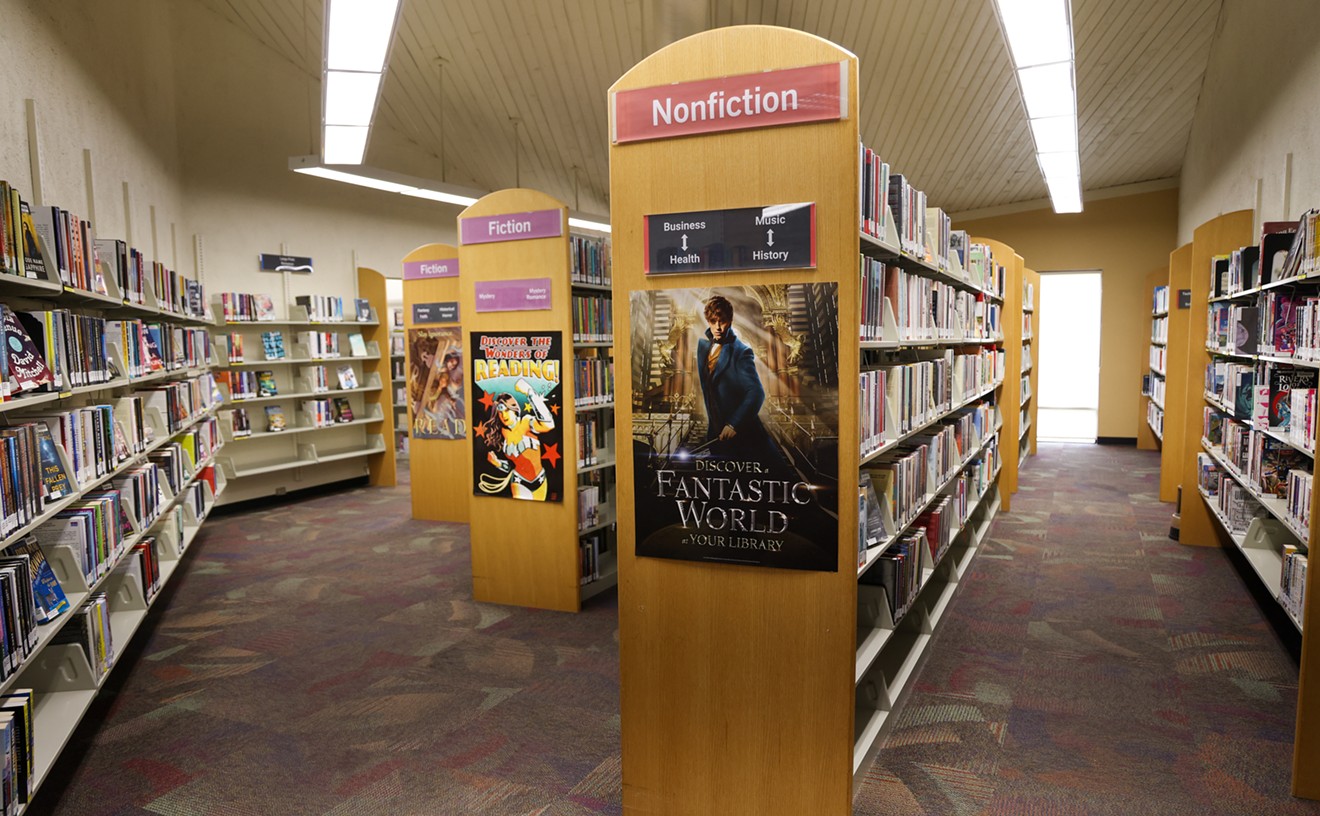On April 7,
“I thought that the audience has to be dealing with an onslaught of history and music and durational performance,” Mac says. “They need to be kind of falling apart while experiencing it. But, at the same time, because they’re falling apart, they’re also building themselves up.”
The 24-hour production of the play begins with big-band arrangements, but by the end of the show, Mac sits on the stage alone, singing songs while strumming a ukulele or keying a piano. Mac wrote the show as a response to repression and how the past plays into the present. Suffice to say, Mac isn't happy with the leadership of our country right now.
“That strange dichotomy that happens historically when calamity enters our life — we’re seeing it right now with the Trump administration tearing so many communities apart," judy says. "But, as a result, they’re also rallying together and energized to create change."
With A 24-Decade History of Popular Music, Mac serves as the truest sense of an auteur. J
“About eight years ago, I was on tour in Australia and I was thinking a lot about how communities in America throughout our history were built as a result of being torn apart,” Mac says. “I thought it would be interesting to make a show about it, that was kind of a metaphorical representation of that phenomenon in the U.S.”
Mac usually splits up the play across multiple nights, performing a few hours at a time. However, in 2016,
“In our current culture, most people spend 40 hours or more at work and everyone is connected to their phones when they’re not at work,” Mac says. “It seems like it would take more than a 90-minute show to break people out of their patterns."
For Mac, A 24-Decade was never about being 24 hours long.
The play is really an eight-year durational piece — plus another year still to come — and each performance is different from the last. Every performance serves as its own show and a part of the whole project, Mac says.
In Tempe, Mac will present an abridged version. But,
“I gave them a setlist, so we’re prepared for basically a foundation of a show,” Mac says. “But, when I show up and I talk to people and I’m hanging out there, I’ll probably be changing a lot of stuff. I like to cater it to what is happening in the town and what’s happening that day.”
The Tempe show will cover the same ground as the full production, but with a bit more focus on one theme: resistance.
“It really is an abridged version,” Mac says. “What I’m focusing on are songs of resistance throughout that history, and I’ll give you one guess why. Sometimes, they’re not songs of resistance, but songs that we’ve transformed into being songs of resistance. We’re just here trying to inspire people on how to get through the deep conflict that seems to be part of the way governing is happening right now.”
Audience interaction is a part of the show and the evolutionary nature of the project leaves patrons with few expectations. At one show, audience members were given ping-pong balls to throw at other patrons. During an hour of the full-length performance, the audience was instructed to wear a blindfold.
“I don’t try to tell the audience how to feel,” Mac says. “I don’t want to manipulate them through the performance, and if we’re manipulating them they know that we know that they know we’re manipulating them. I don’t like to force anything on people.”
In 2017, Mac received a MacArthur Genius Grant and A 24-Decade History of Popular Music was a finalist for the Pulitzer Prize for Drama. Mac appreciates the recognition and certainly wasn't upset when Broadway legend Patti LuPone recognized
“I just went to an opening last night of a Broadway play, and everyone knew who I was,” Mac says with an earnest, humbled laugh. “That was the first time that’s happened where I walked into a room and all of my contemporaries say hi to me.”
Mac performs the show in
“People’s idea of drag is sometimes very limited, and they don’t understand that it’s an art form like dance is an art form,” Mac says. “There are many different kinds of drag, and obviously mainstream culture thinks of drag in their access to it. Most people have seen RuPaul or those queens and that’s their understanding of what drag is.”
Mac doesn't mind preaching to the converted, and
“The show isn’t so much about history,” Mac says. “Everyone in the room has a lot of history on our backs. It’s not so much about music. Everyone in the room has a lot of culture in our DNA, and we’re all trying to figure out what to do with it.”
Taylor Mac is scheduled to perform about two hours from A 24-Decade History of Popular Music at ASU Gammage,1200 South Forest Avenue in Tempe, at 7 p.m. on April 7. Tickets are $20 and are available through Ticketmaster.











